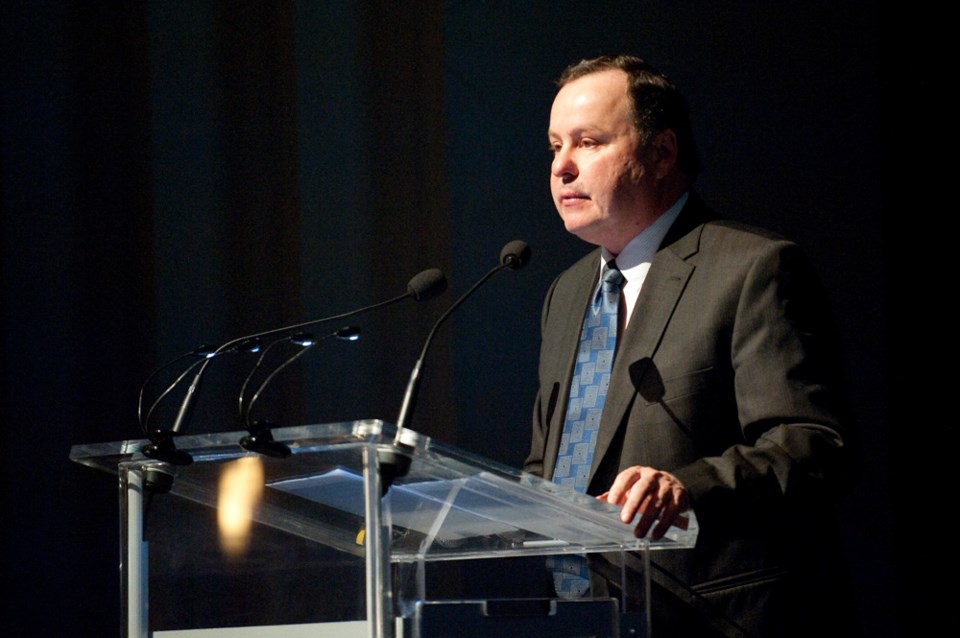Regina - Saskatchewan delivered its 2015-16 fiscal year budget on March 18 based on a decline of $661 million in oil revenue from last year’s budget that ended March 31. Economy Minister Bill Boyd spoke to Pipeline News about the impact of declining oil revenue on the budget exercise, the industry and the overall economy.
With oil forecast to average just $53 a barrel WTI this year and slowly rising to $88 by 2019, we also wanted to know if the days of $100 a barrel are long gone.
Pipeline News: Last year’s budget set oil revenues at $1.5 billion, but the new 2015-16 budget pegs oil revenues at $903 million. How significant is a decline of $661 million in oil revenue in one line item to the budget?
Boyd: It is significant. Anytime we see a reduction of that amount in any area of the budget, of course, I see it as significant.
I would say though that we’ve been able to (balance the budget) because of a diversified economy here – Saskatchewan’s been able to weather it and still at the end of the day present a balanced budget which is very important I think.
But any revenue drop of that amount is certainly significant.
P.N.: What is the impact of the budget exercise based on the loss of $661 million in oil revenue?
Boyd: Well, we had to make a lot of adjustments of course. Internally, we started looking at every ministry in reductions in expenditures or holding the line on expenditures to address it.
We were looking for every kind of efficiency we possibly could. In addition to that, we wanted to ensure we weren’t raising taxes.
But at the end of the day, even though there is that kind of reduction, it also shows the strength of Saskatchewan’s economy in other areas that we were able to still come forward with a balanced budget.
P.N.: Natural gas revenue is expected to decline from $16.5 million in the last fiscal year to $11.3 million in 2015-16, but prices have been slowly rising from lows a few years ago. Do you attribute the fall in revenue to natural declines in production or to something else?
Boyd: I think natural declines in production. When we see prices at pretty low levels like this, it has a tendency obviously to restrict any kind of drilling activity for natural gas. We’ve seen that over the last number of years.
If gas prices increase in the future, we might see that revenue number change, but that’s the number we expect from 2015-16.
While that number is significant, it’s not real large in the overall scheme of things, when it comes to the budget.
P.N.: With recent venting and flaring regs coming into effect in July and new gas plants in the southeast coming on stream, wouldn’t you expect to see an increase in gas revenues?
Boyd: That would be the case, if it was happening immediately. Of course, it takes some time to put those initiatives in place.
While we are optimistic, those measures will make a difference, it’s going to take some time to be implemented.
P.N.: Last year’s budget forecast for WTI oil was $92.85 a barrel. The new budget forecast is $53, then rising annually to $67, $77, $85 and $88 by 2019. Are you being cautious or too pessimistic with these forecasts for the next few years?
Boyd: Well, we are being cautious because it warrants caution I think. We simply take a number of forecasters and then average the number to come up with our view on it. That’s the industry view on it right now.
That could change and it could change almost overnight. As we all know in the commodity world, things can change pretty quickly. We still have to present a budget and we have to present the “out years” as to what we expect.
Those are the numbers that the forecasting agencies that we use are basing their expectations on for the future.
P.N.: I guess you have to base oil price forecasts on what is happening today rather than crystal balling events?
Boyd: Any kind of geo-political change can really change the whole view in a very short period of time and that’s difficult to foresee. No one really has that ability out there.
We simply use forecasters, then base our numbers on those forecasts going out to those years.
The further you go out, the less accuracy, anyone expects that to be the case.
P.N.: Does this mean you don’t see a return to $100 per barrel oil for at least five years?
Boyd: I would say the probability of $100 a barrel is pretty low right now. However, some kind of geo-political change could change that almost overnight.
We have to be realistic when we are looking at the budget, and be very cautious going forward as to what we expect to happen.
P.N.: If these price forecasts play out in the long term, what impact will this have on industry and the province?
Boyd: If those numbers are accurate going forward like that, it’s going to have an impact. We’ll probably see less drilling happening here in Saskatchewan.
We’d likely see some pullback in terms of the investment from the industry in Saskatchewan as well going forward.
However it’s very important to note that even though we’ve seen a very significant impact of lower oil revenues, our economy is very diversified now and that has certainly helped to address the situation.
Other employment opportunities are out there if people are not employed by the oil and gas sector. We’ve seen investment flowing in other areas. For example, a $1.7 billion expansion investment by Mosaic (K3 potash mine in Esterhazy) in recent days.
We expect there are other announcements coming forward that will illustrate once again the diversified nature of Saskatchewan’s economy.




